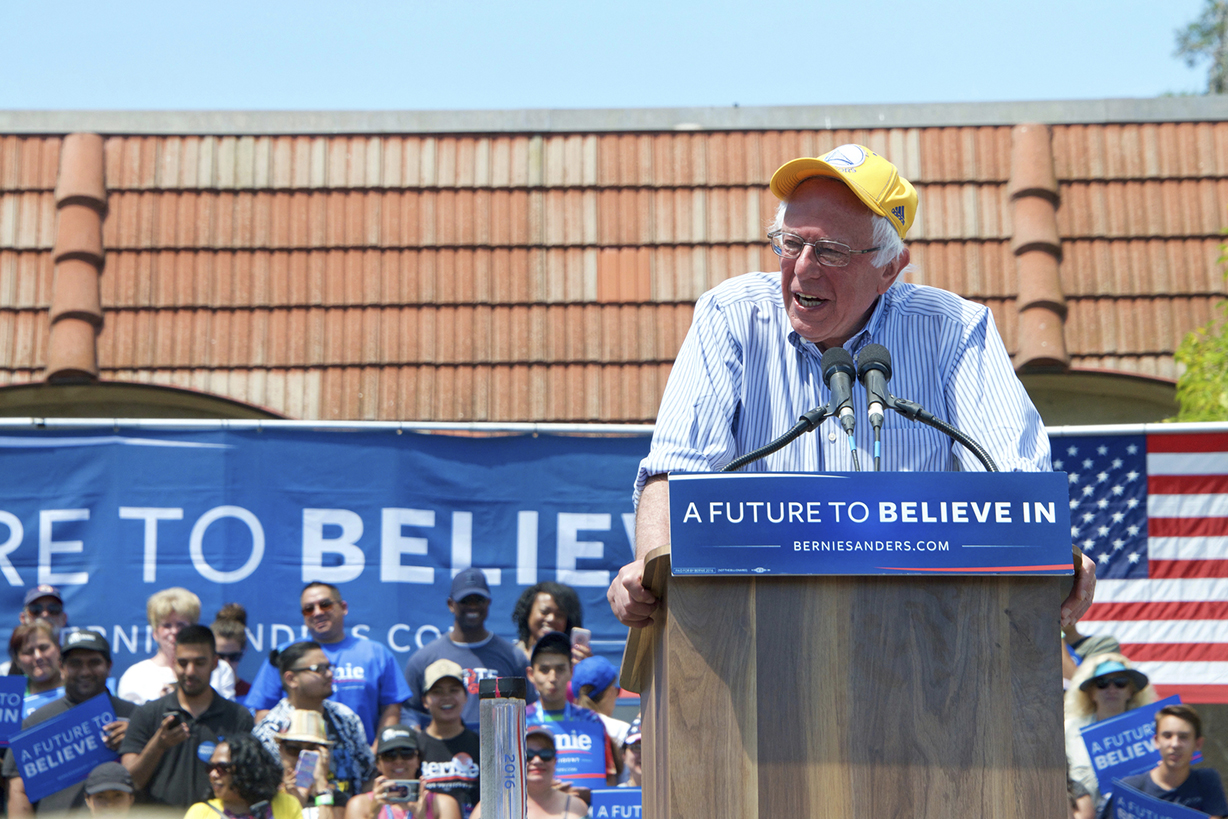US Election: California drug pricing vote is pharma’s big showdown

After a seemingly interminable election campaign, and one that has left most voters deeply divided and disillusioned with politics, America goes to the polls today to elect the next President of the United States.
For pharma, there are clear signs that the unpredictability and lowest-common denominator politics of Donald Trump means most in pharma believe Hillary Clinton would make a better president (read the Endpoints survey conducted in September here).
This is no mean feat for Clinton, given that she has declared fighting pharma industry prices a key election pledge. But industry lobby group PhRMA and its members can usually rely on a Republican-controlled Congress to block a Democrat president – as Barack Obama knows only too well.
But there is another vote happening today which the industry is genuinely worried about – California’s Proposition 61 – one of a number of legislative proposals being put to voters alongside the presidential vote.
The California Drug Price Relief Act or ‘Prop 61’ proposes that the state of California should take on powers to negotiate drug prices directly with pharma – and never pay more than the US Dept of Veteran Affairs (DVA), which enjoys a 20-40% discount compared to other payers in the US.
The industry is vehemently opposed to the idea, and has poured millions into the ‘No Prop 61’ campaign over the last few months, taking on the ‘Yes on Prop 61’ which has established momentum, thanks especially to the support of Bernie Saunders.
The American people are tired of not being able to afford the medicine they need while the drug industry makes huge profits. #YesOn61
— Bernie Sanders (@BernieSanders) November 8, 2016
Both sides think that if the legislation is passed, it could have national implications far beyond California. After months with the ‘yes’ vote in the lead, polls suggest that the campaigns are neck and neck, setting up a nailbiting night in the Golden State.
To coin a Donald Trump phrase, this could be ‘huge’.
The EpiPen backlash
Prop 61 has been put forward by Michael Weinstein, head of the AIDS Healthcare Foundation and one of the most hardline pharma critics in the US over the last 20 years.
While Weinstein has until now failed to capture the national mood, things are different in 2016. Repeated scandals over pharma industry year-on-year price rises and indefensible price gouging – with Mylan’s EpiPen just been the latest - has turned drug prices into a headline issue across the country.
Tapping into this sense of outrage, Garry South, lead strategist for the Yes on Prop. 61 campaign says pharma companies have the “morals and ethics of junkyard dogs”.
“Are you going to trust Sen. Bernie Sanders, the California Nurses Assn., AARP and Consumer Watchdog, who strongly back Prop. 61? Or are you going to trust the criminal drug companies – convicted of all sorts of illegal behaviour – who are now spending $126 million of their ill-gotten gains to lie about Prop. 61?”
Highlighting the many multi-million and multi-billion fines pharma companies have paid out in recent years in fraud and marketing infringement cases, South is declaring all-out war on pharma.
“Bottom-line: you can’t trust these companies any further than you can spit. And you know they’ll say anything in their ads to protect their price-gouging business practices. This is a classic case of voters beware.”
The Yes campaign has even launched six ‘Wanted’ poster adverts of top pharma execs, portraying J&J’s Alex Gorsky, Pfizer’s Ian Read and Merck’s Kenneth Frazer as outlaws who must be brought to justice.
https://youtu.be/ZYNmND9cNhs
While pharma’s rhetoric has been more restrained, it has thrown huge resources behind the ‘No’ campaign, spending more than $100 million on advertising and lobbying efforts.
Lilly’s John Leichleiter is one of the CEO’s who has addressed the debate directly.
“Prop 61 we’re fighting that tooth-and-nail in California. It’s not only bad legislation, it’s bad for your health. And we’re trying to impress that on the voters," he said in a recent analyst call.
"What we’ve found is that the more people become aware of what’s at stake here and what’s the likely outcomes of Proposition 61, the more they’re prone to vote against it and vote it down."
Opponents say that Prop 61 would only help a small percentage of Californians, and have a knock-on effect on the VA, who they say could end up paying more if a 40% discount is enforced across the State.
It’s worth noting that not all those campaigning for lower pharma prices nationally believe Prop 61 is the right answer.
National campaigners say reforms to pricing need to be introduced across the US, or otherwise creating more unintended consequences for other states and other insurance policies.
These arguments have helped the ‘No’ vote gain ground, bringing it to a dead heat on polling day.
But even if Proposition 61 is defeated in the polling booths of California, pharma’s leaders can see the writing is on the wall for its existing pricing model. Some CEOs are trying to get on the front foot, including Allergan’s Brent Saunders and Novartis’ Joe Jimenez, who recently set out his vision for an outcomes-based future for US drugs pricing.
Writing in Forbes magazine, Jimenez explains Why The Approach to Drug Pricing Has To Change Now. He says pharma must change, but calls for a reformed system “where all players are incentivised to provide better care” – a reference to the major US health insurers and pharmacy benefit managers who also enjoy handsome profits from their work.
[caption id="attachment_20013" align="alignnone" width="270"] Novartis' Joe Jimenez[/caption]
Novartis' Joe Jimenez[/caption]
Jimenez will explain his viewpoint in person at the Forbes Healthcare Summit on 30 November, by which time either Donald Trump or Hillary Clinton will be president-elect. Trump has promised to scrap the Affordable Care Act (aka Obamacare) and replace it with ‘something terrific’. Clinton, meanwhile has promised to ‘take on’ pharma over its prices.
Either way, the industry’s biggest market is facing some major changes from 2017. That means pharma needs to renew its ‘social contract’ with the people and payers of the US, as well as keeping its shareholders happy.










